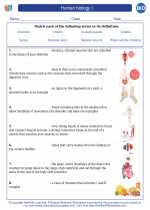Hydrolysis
Hydrolysis is a chemical reaction in which a compound is broken down by the addition of water. This reaction involves the cleavage of a chemical bond in the presence of water, resulting in the formation of two or more new compounds.
Mechanism of Hydrolysis
The process of hydrolysis involves the breaking of a covalent bond in a molecule with the addition of a water molecule. This can result in the formation of an acid and a base, or the breakdown of a larger molecule into smaller subunits.
Biological Importance
Hydrolysis plays a crucial role in biological systems. For example, the digestion of food involves hydrolysis reactions in which large polymers such as carbohydrates, proteins, and fats are broken down into smaller molecules that can be absorbed and utilized by the body.
Examples of Hydrolysis
Some common examples of hydrolysis include:
- Hydrolysis of carbohydrates: Complex carbohydrates such as starch and glycogen are broken down into glucose molecules through hydrolysis.
- Hydrolysis of proteins: Proteins are broken down into amino acids through hydrolysis reactions during digestion.
- Hydrolysis of fats: Fats are hydrolyzed into fatty acids and glycerol, which can then be utilized for energy production.
Study Tips
To understand hydrolysis better, consider the following study tips:
- Review the chemical structure of water and how it can participate in hydrolysis reactions.
- Learn about the enzymes involved in catalyzing hydrolysis reactions in biological systems.
- Practice identifying examples of hydrolysis in biological processes, such as digestion and metabolism.
- Understand the significance of hydrolysis in nutrient absorption and energy production in living organisms.
[Hydrolysis] Related Worksheets and Study Guides:
.◂Biology Worksheets and Study Guides High School. Human biology I
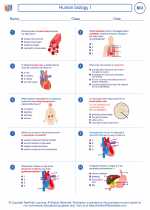
 Worksheet/Answer key
Worksheet/Answer key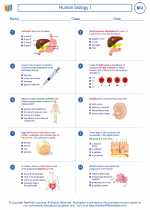
 Worksheet/Answer key
Worksheet/Answer key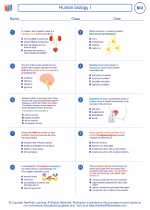
 Worksheet/Answer key
Worksheet/Answer key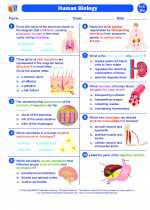
 Vocabulary/Answer key
Vocabulary/Answer key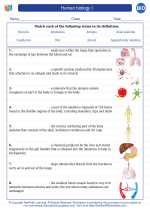
 Vocabulary/Answer key
Vocabulary/Answer key
 Vocabulary/Answer key
Vocabulary/Answer key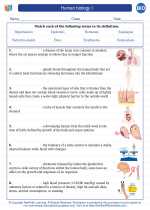
 Vocabulary/Answer key
Vocabulary/Answer key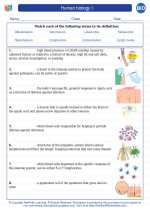
 Vocabulary/Answer key
Vocabulary/Answer key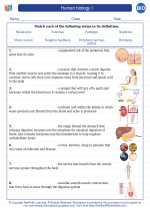
 Vocabulary/Answer key
Vocabulary/Answer key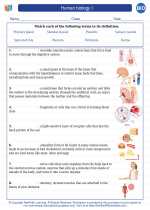
 Vocabulary/Answer key
Vocabulary/Answer key